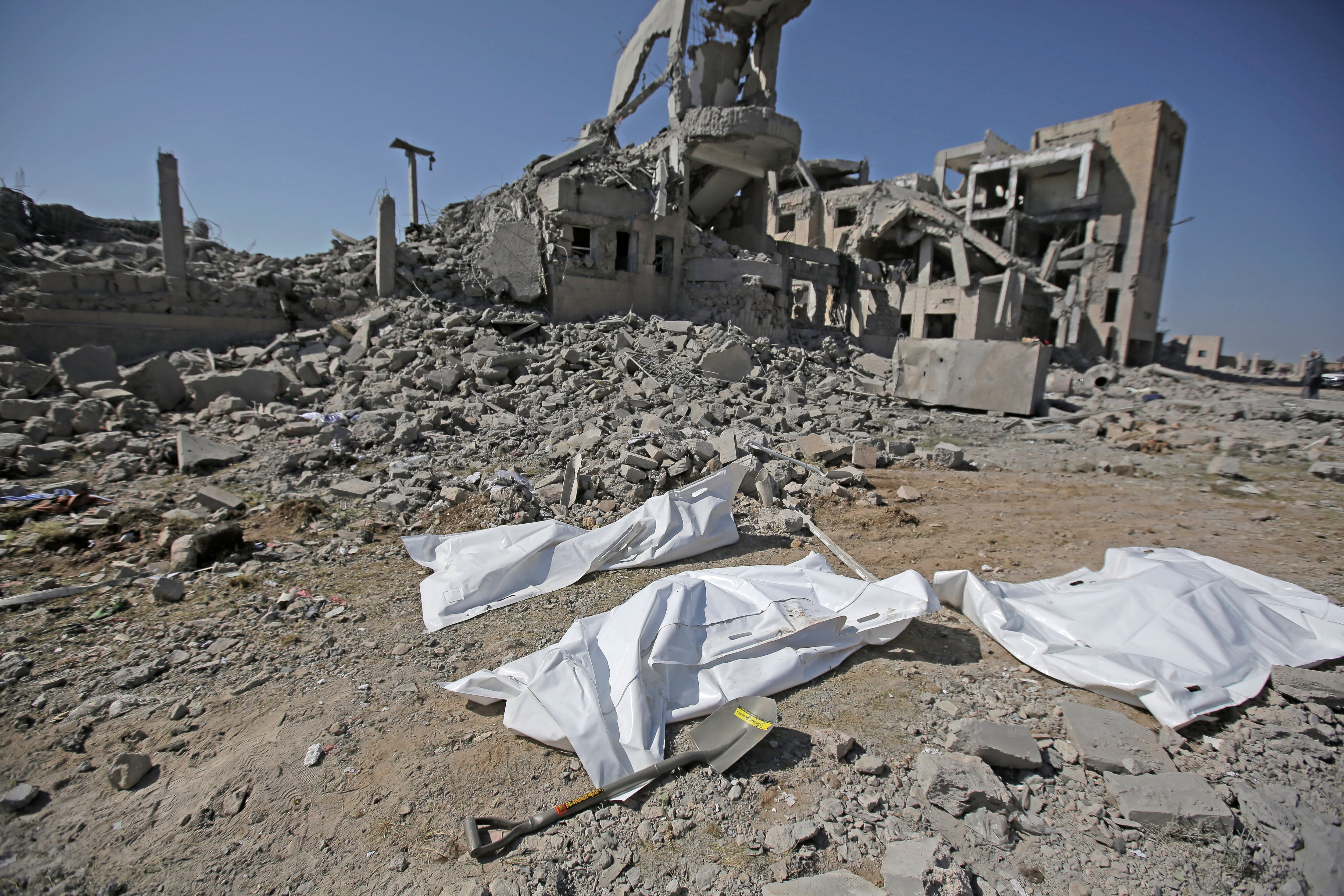Updated 2/5/2021 at 11:50 am EST to clarify status of the two arms sales
WASHINGTON —The Biden administration has paused indefinitely two precision guided munition sales to Saudi Arabia, worth as much as $760 million, as part of a new policy aimed at curtailing violence in Yemen, Defense News has learned.
However, that policy, announced Thursday by President Joe Biden, left open the possibility for future sales that are considered vital for Saudi Arabia’s national defense, a fine line that would mean some munitions sales will continue.
“We are ending all American support for offensive operations in the war in Yemen, including relevant arms sales,” Biden said during a speech at the State Department. “At the same time, Saudi Arabia faces missile attacks, UAV strikes, and other threats from Iranian-supplied forces in multiple countries. We’re going to continue to support and help Saudi Arabia defend its sovereignty and its territorial integrity and its people. "
RELATED

The two deals include a foreign military sales case for 3,000 Boeing-made GBU-39 small diameter bombs, which was cleared by the State Department in late December with an estimated price tag of $290 million, according to two sources familiar with the matter. The second is a direct commercial sale for Raytheon Technologies munitions, likely the reported $478 million sale of 7,000 Paveway IV smart bombs.
Raytheon CEO Greg Hayes foreshadowed the move in a Jan. 26 investor call, when he said the company was backing off the sale of an “offensive weapon system” to an unnamed middle eastern customer because it did not believe a license would be granted by the new administration.
Boeing did not immediately respond to a request for comment.
It is possible that further Saudi weapon sales may be paused or outright cancelled in the future, as the Biden administration has announced a wide-ranging review of weapon sales cleared by the Trump administration. According to a White House spokesperson, arms sales to Saudi Arabia will go back to the traditional arms sale oversight process, after the Trump administration pushed multiple weapon sales through over objections by Congress.
“All arms sales to Saudi Arabia will return to standard procedures and orders including with appropriate legal reviews at the State Department,” the spokesperson said. “We have reestablished an interagency process for working through the details of individual cases, led by the White House and with all relevant agencies at the table, bringing expertise, discipline, and inclusivity back to our policymaking on these issues.”
Added an administration official, speaking on background, “we are ending all American support for offensive operations in Yemen, including relevant arms sales. Importantly, this does not apply to offensive operations against either ISIS or AQAP.
“It does include both materiel and terminating our intelligence sharing arrangement with Saudi Arabia regarding the war in Yemen. You’ve seen that we have already paused two arms sales with Saudi Arabia to ensure while we examine whether they meet our objectives and policies.”
Since 2015, the Arab Sunni nations of Saudi Arabia and the United Arab Emirates have led a coalition of states in Yemen against rebel Houthi forces, which are backed by the Shia government of Iran. Aligned with former Yemeni President Ali Abdullah Saleh, the Houthis took over Yemen’s capital, Sanaa, in September 2014.
The armed conflict in Yemen has resulted in the largest humanitarian crisis in the world, according to Human Rights Watch.
Citing the Yemen Data Project, HRW says that during the Saudi-led air war in Yemen, more than 17,500 civilians have been killed and injured since 2015, and a quarter of all civilians killed in air raids were women and children. More than 20 million people in Yemen are experiencing food insecurity; 10 million of them are at risk of famine.
Howard Altman with Military Times contributed to this report.
Joe Gould was the senior Pentagon reporter for Defense News, covering the intersection of national security policy, politics and the defense industry. He had previously served as Congress reporter.
Aaron Mehta was deputy editor and senior Pentagon correspondent for Defense News, covering policy, strategy and acquisition at the highest levels of the Defense Department and its international partners.








